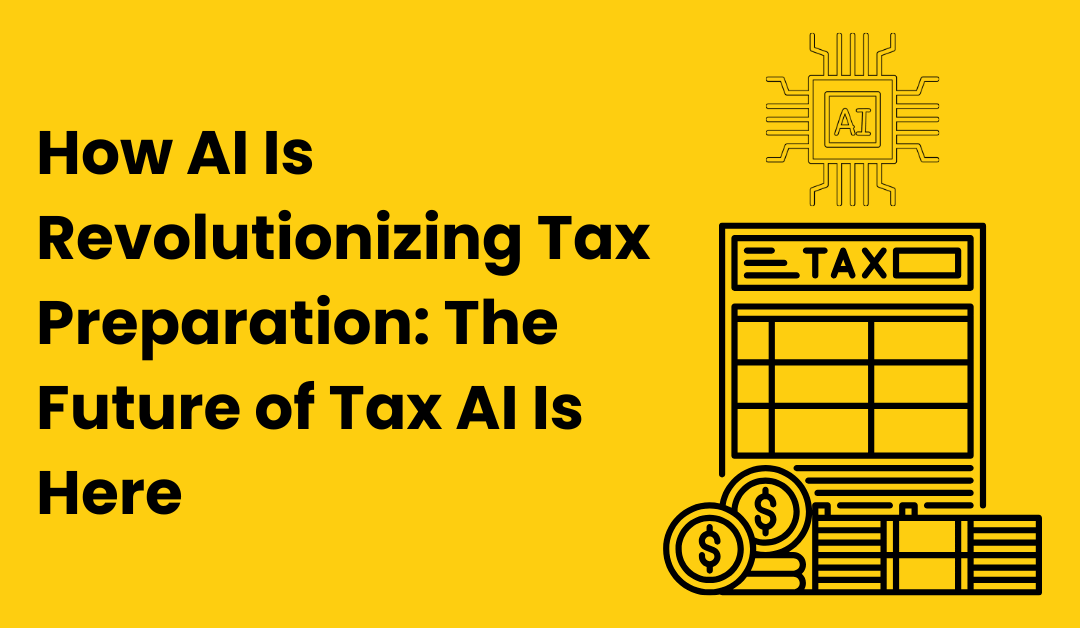AI is transforming the tax industry—streamlining compliance, automating research, and reducing costly errors. From small firms to large practices, professionals now use AI to complete taxes faster and with greater precision. Discover how AI tax preparation tools are changing the game and why adopting tax AI is a must for future-ready professionals.
How AI Is Revolutionizing Tax Preparation
In a profession built on precision, regulation, and ever-changing laws, the rise of AI tax preparation is not just a convenience—it’s a revolution. Tax professionals are increasingly adopting tax AI to automate tedious tasks, conduct deep tax research, and even generate client-ready tax strategies in minutes. But how exactly is AI transforming the tax preparation process? And what does this mean for the future of tax practices?
Let’s explore how firms today use AI to complete taxes and why your firm should, too.
1. From Compliance Workhorse to Strategic Advisor
Traditional tax preparation is time-consuming. It requires manual data entry, hours of research, and constant cross-checking against ever-evolving IRS codes. But now, AI tax tools are automating much of this workload.
AI can:
- Extract and categorize tax data from documents (e.g., W-2s, 1099s, K-1s) instantly
- Detect potential errors or red flags before filing
- Cross-reference federal and state codes using real-time updates
- Identify planning opportunities such as deductions, credits, and entity structuring
With automation handling the grunt work, tax professionals are free to focus on high-value advisory services.
2. Agentic AI in Tax: More Than Just Automation
The next generation of AI tax preparation tools includes agentic AI—models that not only perform tasks but take initiative. These AI agents don’t wait for you to prompt them. They analyze tax returns, anticipate potential problems, and recommend planning strategies tailored to the client’s profile.
For example, an agentic AI might say:
“This client is projected to cross the NIIT threshold. Consider accelerating charitable donations or implementing a donor-advised fund strategy.”
This level of proactive analysis can enhance client service and elevate the role of the tax advisor from number cruncher to strategic planner.
3. Speed and Accuracy: AI Sets a New Standard
Speed is often the enemy of accuracy in tax prep—but AI flips that paradigm. Modern tax AI models can process hundreds of pages in seconds with accuracy rates that rival human professionals.
By using AI to complete taxes, professionals reduce the risk of missed deductions or noncompliance. Some AI tools are trained directly on authoritative sources such as:
- The Internal Revenue Code
- IRS Publications and Forms
- Tax Court Cases
- Private Letter Rulings and Chief Counsel Advice
This reduces reliance on manual searches through outdated software or scattered web results.
4. Cost-Effective for Firms of All Sizes
In the past, advanced tax technology was reserved for the Big Four. But cloud-based AI tax tools are leveling the playing field. Small and mid-sized firms now access the same cutting-edge technology—often at a fraction of the cost.
Whether you’re a solo CPA, a boutique firm, or a national chain, adopting AI reduces overhead and boosts billable efficiency. AI can:
- Shorten review cycles
- Reduce staff burnout during peak season
- Help junior staff deliver senior-level insights
5. Tools That Are Leading the Charge
Some of the most effective AI solutions used by professionals today include:
- Hive Tax AI – Offers AI-powered tax research and personalized tax planning tools built for CPAs and tax advisors
- Intuit’s Intuit Assist – A built-in generative AI feature across their suite of tools
- Thomson Reuters CoCounsel – AI research support for tax attorneys and firms
These platforms are constantly improving, making it easier than ever to incorporate AI into your workflow.
6. Regulatory and Ethical Considerations
While the benefits are clear, tax professionals must be mindful of ethical and regulatory considerations. AI-generated advice should always be reviewed by a human expert. And it’s essential to ensure client data is handled with the utmost security and in compliance with IRS regulations and state laws.
The AICPA and IRS have begun exploring AI-related guidance, and firms should stay current on best practices.
Final Thoughts: Embrace the Future of Tax Preparation
AI is not here to replace tax professionals—it’s here to empower them. The firms that adopt AI tax tools now will be the ones setting the standard in the years to come. Whether it’s through faster returns, deeper insights, or proactive planning, the future of AI tax preparation is already reshaping the profession.
Ready to explore how AI can streamline your tax workflow?
Try our AI tax tool today or book a free demo and see how AI can help you serve senior clients.

